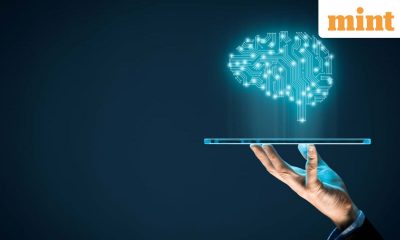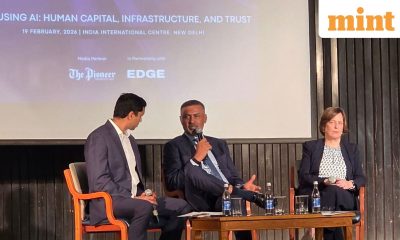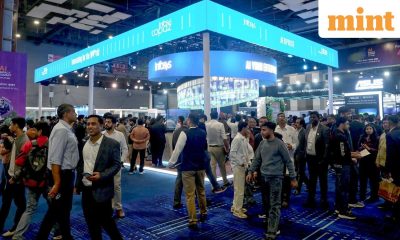
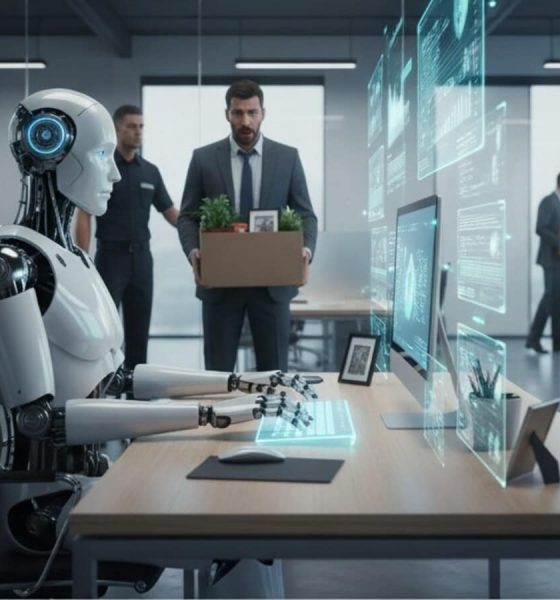
Metaverse
Is AI really stealing your job? New Yale study fact-checks claims and finds out the culprits – Crypto News
AI job loss update: For over two years, artificial intelligence has been blamed for triggering jobs across sectors globally, especially the tech industry. From boardrooms to earning calls, AI replacing tech jobs is the new hot topic of discussion, with many US CEOs warning about the potential impact the new technology could have on employment.
However, a new study from the Yale University appeared to bust that myth, saying that the AI job loss frenzy is more of a myth than fact.
AI job loss: What did the Yale study say?
The Yale report says that the spooked reaction at the Silicon Valley and other tech hubs of the world relating to AI replacing jobs at a large scale remains speculative.
“While anxiety over the effects of AI on today’s labor market is widespread, our data suggests it remains largely speculative,” according to the study from Yale’s Budget Lab, a policy research centre on economics.
The report has been based on researches’ analysis of US job data from the past 33 months since ChatGPT got released in 2022, the employment status of college graduates, and how exposed different workers at different levels are to AI.
Are you immune to AI?
In one of the analyses, researchers compared three groups of workers with varying levels of exposure to AI — high, medium and low. The researchers tracked if there have been any changes to the share in their workforce, only to find that the percentage did not budge a lot. This suggests that AI is not much of a factor even if workers are exposed to it stealing their jobs.
Comparing technologies
Separately, the study also analysed the rate of change in the composition of US workforce and compared the data with two different time periods — when computers got popular in 1984, and the boom in internet entrepreneurship in 1996. Surprisingly, researchers found that the US labour market’s composition in the AI era closely matches the pace when computers and internet were getting popular, suggesting that the new technology no more disruptive than the preceding ones.
What about college graduates?
The Yale study also took into account how AI might be affecting recent college graduates, comparing the job distribution of people between the ages of 20 and 24, with older adults in the age group of 25 to 34. The researchers found that both the groups had similar occupational mix and career paths, suggesting that AI did not have much impact on entry-level jobs as well.
What’s behind job loss?
The disruption over the last few months among entry level jobs has been attributed to a cooling job market rather than AI, according to the Yale study.
“The picture of AI’s impact on the labor market that emerges from our data is one that largely reflects stability, not major disruption at an economy-wide level,” the study reads.
But who really is the culprit?
According to the study, the depressing Bureau of Labor Statistics can be attributed to various factors, one of them being the US Federal Reserve’s decision to put a stop to the zero-interest rate policy in 2022, the year when ChatGPT was launched. Before that, companies could borrow massive amounts of capitals at cheap interest rates that would fuel their business.
Another reason for the data can be the fact that now there are simply more college graduates with high degrees than there are entry-level jobs, a phenomenon that predates the ChatGPT era.
“While generative AI looks likely to join the ranks of transformative, general purpose technologies, it is too soon to tell how disruptive the technology will be to jobs,” as per the Yale study.
-
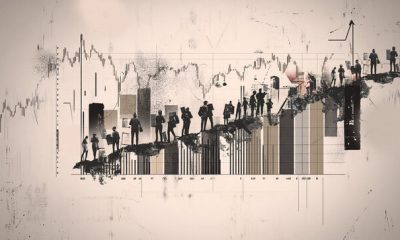
 others7 days ago
others7 days agoIndian Rupee trades calmly against US Dollar ahead of US markets opening – Crypto News
-
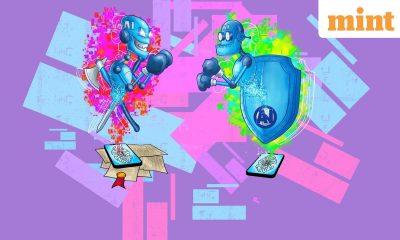
 Metaverse1 week ago
Metaverse1 week agoHow companies are turning AI on itself to fight fraud – Crypto News
-

 Blockchain1 week ago
Blockchain1 week agoHyperunit Whale Dumps $500M In Ethereum As Massive Crypto Bet Turns Sour – Crypto News
-

 others1 week ago
others1 week agoGrowth to moderate as BNM holds – UOB – Crypto News
-
Cryptocurrency1 week ago
TRUMP Coin Pumps 5% as Canary Capital Amends ETF Filing With New Details – Crypto News
-
Business1 week ago
Michael Saylor Says Strategy Can Cover Debt Even If Bitcoin Crashes to $8,000 – Crypto News
-

 Blockchain1 week ago
Blockchain1 week agoExtreme Bitcoin Shorts Could Predict A Bottom, Here’s The Significance – Crypto News
-
Business1 week ago
Bitcoin vs. Gold: Expert Predicts BTC’s Underperformance as Options Traders Price in $20K Gold Target – Crypto News
-

 Technology1 week ago
Technology1 week agoDevelopers key architect of AI; India stands at the centre: OpenUK CEO Brock – Crypto News
-

 Blockchain1 week ago
Blockchain1 week agoLogan Paul Sells Controversial Pokémon card For $16.5M – Crypto News
-
others1 week ago
XRP Price Prediction Ahead of Potential U.S. Government Shutdown Today – Crypto News
-

 others1 week ago
others1 week agoSolid growth outlook into 2026 – Standard Chartered – Crypto News
-
Cryptocurrency1 week ago
TRUMP Coin Pumps 5% as Canary Capital Amends ETF Filing With New Details – Crypto News
-

 Cryptocurrency1 week ago
Cryptocurrency1 week agoCrypto Flows to Human Trafficking Services Jump 85% to Hundreds of Millions in 2025 – Crypto News
-
Business1 week ago
Michael Saylor Says Strategy Can Cover Debt Even If Bitcoin Crashes to $8,000 – Crypto News
-

 Metaverse1 week ago
Metaverse1 week agoMaharashtra’s MahaVISTAAR meets Amul’s Sarlaben – Crypto News
-
others1 week ago
Dogecoin, Shiba Inu, Pepe Coin Price Predictions As BTC Crashes Below $68k – Crypto News
-

 Technology5 days ago
Technology5 days agoApple Set to Bring Car Keys Function to Toyota Vehicles – Crypto News
-
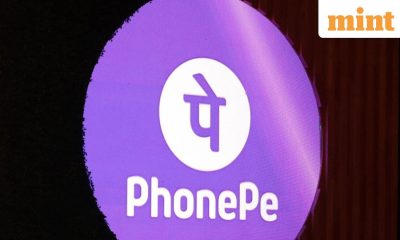
 Metaverse3 days ago
Metaverse3 days agoPhonePe launches AI-powered natural language search built on Microsoft Foundry – Crypto News
-

 Metaverse3 days ago
Metaverse3 days agoPhonePe launches AI-powered natural language search built on Microsoft Foundry – Crypto News
-

 others1 day ago
others1 day agoHealthcare Giant Handing $1,900,000,000 To Customers After Allegedly Limiting Competition, Driving Up Insurance Costs – Crypto News
-

 Cryptocurrency1 week ago
Cryptocurrency1 week agoPublicly Traded Blockchain Lender Figure Confirms Customer Data Breach – Crypto News
-

 Cryptocurrency1 week ago
Cryptocurrency1 week agoPublicly Traded Blockchain Lender Figure Confirms Customer Data Breach – Crypto News
-

 Technology1 week ago
Technology1 week agoFuture of AI is a governance question, not a technology race: Vilas Dhar of Patrick J McGovern Foundation | Interview – Crypto News
-

 Blockchain1 week ago
Blockchain1 week agoFigure Technology Data Breach Exposes Customer Personal Information – Crypto News
-

 Blockchain1 week ago
Blockchain1 week agoBitcoin On-Chain Data Indicates High Volatility Ahead Following Post-CPI Reaction – Crypto News
-

 Cryptocurrency1 week ago
Cryptocurrency1 week agoSaylor’s Strategy (MSTR) Stock Rallies 9% Amid Bitcoin Price Rebound – Crypto News
-

 Cryptocurrency1 week ago
Cryptocurrency1 week agoCould XRP slide toward $0.80 next? THESE signals hold the key – Crypto News
-

 Metaverse1 week ago
Metaverse1 week agoIndia will showcase small AI, early startups at Summit starting tomorrow – Crypto News
-

 Technology1 week ago
Technology1 week agoDecoded: AI buzzwords everyone talks about – Crypto News
-
Business1 week ago
Trump-Backed American Bitcoin Reserves Surpass 6,000 BTC, Now Worth $425.82M – Crypto News
-

 Metaverse1 week ago
Metaverse1 week agoMint Primer | Why is there a hype around AI summit in India? – Crypto News
-
Business1 week ago
HOOD and COIN Stock Price Forecast as Expert Predicts Bitcoin Price Crash to $10k – Crypto News
-
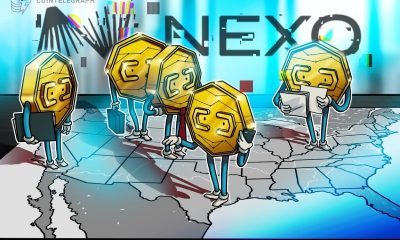
 Blockchain1 week ago
Blockchain1 week agoNexo Relaunches Crypto Platform in the United States – Crypto News
-

 Metaverse1 week ago
Metaverse1 week agoQuick commerce showcase to global audience trips on logistics issues – Crypto News
-
others1 week ago
Ethereum Price Outlook as Harvard Shifts Focus from Bitcoin to ETH ETF – Crypto News
-

 others1 week ago
others1 week agoAmazon Handing $309,000,000 To Customers in Settlement Over Alleged Failure To Refund Returned Items – Crypto News
-

 Blockchain1 week ago
Blockchain1 week agoParadigm Challenges Bitcoin Mining Narrative Amid AI Data Center Boom – Crypto News
-
Business1 week ago
Bitcoin Shows Greater Weakness Than Post-LUNA Crash; Is a Crash Below $60K Next? – Crypto News
-
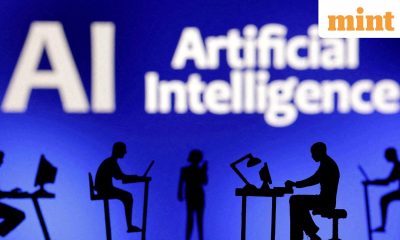
 Metaverse1 week ago
Metaverse1 week agoAM Group challenges tech giants with $25 billion green AI platform – Crypto News
-

 Blockchain1 week ago
Blockchain1 week agoLogan Paul Sells Controversial Pokémon card For $16.5M – Crypto News
-

 Blockchain1 week ago
Blockchain1 week agoLogan Paul Sells Controversial Pokémon card For $16.5M – Crypto News
-

 De-fi1 week ago
De-fi1 week agoOndo Global Markets Taps Chainlink for US Stock Price Feeds – Crypto News
-

 others1 week ago
others1 week agoWhen is the UK employment data and how could it affect GBP/USD? – Crypto News
-
Technology1 week ago
Wintermute Expands Into Tokenized Gold Trading, Forecasts $15B Market in 2026 – Crypto News
-

 others7 days ago
others7 days agoGBP/USD sinks nearly 100 pips as UK jobless rate hits decade high – Crypto News
-

 Technology5 days ago
Technology5 days agoApple Set to Bring Car Keys Function to Toyota Vehicles – Crypto News
-

 Cryptocurrency3 days ago
Cryptocurrency3 days agoCardano (ADA) flashes technical reversal signals following Coinbase integration – Crypto News
-

 Cryptocurrency3 days ago
Cryptocurrency3 days agoCardano (ADA) flashes technical reversal signals following Coinbase integration – Crypto News
-

 Metaverse3 days ago
Metaverse3 days agoPhonePe launches AI-powered natural language search built on Microsoft Foundry – Crypto News

